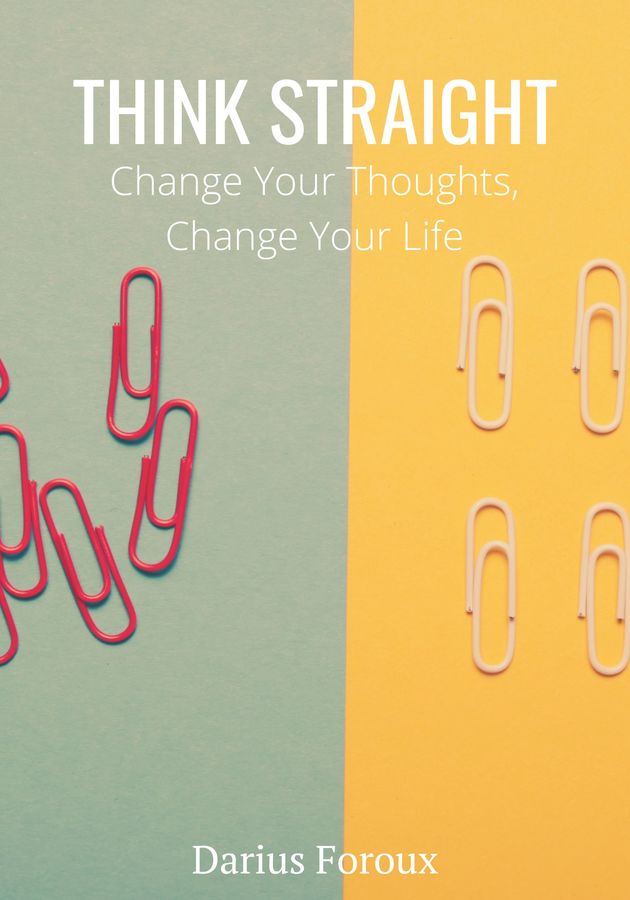While she was young, Sarah Jakes Roberts believed her life would be like a fairytale. Therefore, she did everything to reach her ‘’happy ending,’’ which meant settling for comfort and safety rather than tackling the unknown and uncomfortable. The revelation that things do not function in this manner brought her both pain and, eventually, a new, liberating perspective on life. In ‘’Don’t Settle for Safe’’ she shares her observations on her journey, showing why opting for comfort is rarely beneficial. So, get ready to hear her story!
Getting rid of the clothes that no longer fit
From time to time, we need to reorganize our closets, and it usually is because our old clothes do not fit anymore and we need to make space for new ones. This task is not as easy as it might sound, as we often tend to get emotionally attached to the clothes we wear. Even though keeping clothes that do not fit is irrational, many settle for this option since it brings less discomfort in that moment.
Roberts uses this example to illustrate how difficult it can be to move on and let go of the things we no longer need in our lives, even if it is logical for us to do so. ‘’There are some people, things, and ideas, or maybe patterns or behaviors in your life you’ve grown so accustomed to that the mere thought of confronting and separating from them gives you anxiety,’’ writes Roberts. According to her, we tend to behave this way out of fear or insecurity. Abandoning what is familiar might bring pain or challenges we cannot deal with. Therefore, it seems that staying the same keeps us secure from the dangers of the unknown.
However, opting for comfort and safety also disables us to change for the better and find out who we might become. Moreover, our choices change as our lives change, so sticking to the old patterns is sometimes absurd. Same as it is impossible to wear the same clothes for one’s entire life.
For Roberts, teenage years were not easy. At the age of 14, she gave birth to her first child. She was afraid her peers would reject her for being different from them, so she tried hard to gain their acceptance. She wanted to create an image of herself that would be socially accepted. ‘’I withdrew on the inside and sought validation through what looked like success on the outside,’’ she writes.
Later in life, she realized she could not let go of this behavioral pattern. It took her a long time to get rid of it and start making her needs a priority. ‘’Fear based decisions yield devastating results,’’ Roberts concludes.
Take care of your garden
We all suffer from painful experiences, but we often do not take time to recover from them. Instead, we repress pain, pretending we are alright, which, in turn, causes various unhealthy coping mechanisms for the hidden suffering. This is how Roberts illustrates the consequences of pain repression: ‘’It’s surviving a broken bone and then choosing to live with a perpetual limp rather than undergoing surgery to fix it. Eventually, you can learn to function in such a way that won’t exacerbate the break, but the rest of your body has to overcompensate to make up for the immobility of that broken bone.’’ The same as we take time to heal from physical injuries, we should do the same with emotional ones.
The author advises you to think of your heart as a garden that you need to protect and cultivate. Bad things might enter your garden, but you must prevent them from ‘’taking root and producing fruit in your mind.’’ Also, every garden has weeds that can hinder the free growth of other plants. Compare your suppressed feelings with weeds - they stand in the way of your normal functioning as long as you ignore them. ‘’If we want to guard the garden of the heart, we have many options to keep potential pests at bay, but there isn’t an enemy to gardens more constant and nagging than weeds,’’ Roberts writes.
Try to identify the weeds in the garden of your heart. Reflect on the negative experiences you have had and try to figure out whether you took enough time to repair the emotional damages those experiences caused.
Roberts shares how she realized what some of the weeds in her garden were. It was thanks to her husband, who noticed she often hesitated to admit she was wrong. After he brought up this issue several times, Roberts decided to ‘’trace the source of this weed’’ in her life. By analyzing her past, she realized that she used to be afraid that others would judge her for becoming a teenage mother. Therefore, she decided to present herself as perfect. ‘’I wanted to convince people I’d achieved perfection after imperfection,’’ she admits.
Lessons on true love and intimacy
One of the beliefs that fairy tales encourage is that true love is all harmony and perfection. It comes when you overcome problems and unite with your partner, and together you will live happily ever after. Of course, in reality, true love does not always mean safety and comfort. When you come to the point of sharing intimacy with your partner, your insecurities arise as you realize this person will judge your entire life and personality. In those moments, most of us hope our partners would realize that our love is still valuable, despite our flaws and dark moments of our past.
When we enter a new relationship, we always carry a burden from our previous ones. According to Roberts, true love makes you break out of your old patterns and examine your intentions. She says the marriage with her current husband Touré encouraged her to do just that. One of the things that made her evaluate her behavior and attitudes toward their relationship was his promise he would never cheat on her. Contrary to expectations, his vow made her uncomfortable. She believes it was because her previous unhealthy relationships made her lower her expectations of her partners. To avoid being hurt and to safeguard her heart, Roberts would often settle for less, not expecting much of them. Hence, she refused to embrace the promise her husband made - because, if she expected fidelity from him, she would be devastated if he cheated on her. What also made her uncomfortable and reluctant to make the same type of commitment was the fear she was not capable of keeping it herself.
Low expectations and excuses are comfort zones you need to reject if you want to achieve intimacy. Roberts says true love makes you become a better person and overcome your fears. It requires you to trust your partner, help them with their issues, and praise their victories. On the other hand, Roberts writes: ‘’Loving someone with all of your heart means trusting them with your brokenness too. It requires that you trust them with your dreams and mistakes, your vulnerabilities and strengths, your smiles and tears.’’
Learning to forgive
When people hurt you, your initial reaction might be to do the same to them. However, the desire to harm other people will do you no good - it ‘’will transform you from victim to the villain,’’ Roberts says. Unforgiveness often seems like the easy option. However, it actually prevents you from dealing with your pain in a healthy way.
One of the most valuable lessons parents can teach their children is to practice forgiveness. Roberts says, by responding to her mistakes with forgiveness, her parents showed her why she should do the same with other people. ‘’Because I have been forgiven so many times, it’s easier for me to forgive,’’ she writes. Another important thing she learned from them was that forgiving does not mean forgetting: it is impossible to erase the feelings triggered by the behavior of others. For this reason, the author advises her readers not to settle for unforgiveness, but rather to forgive and remember.
Keep in mind that people often tend to hurt others because they are in pain themselves. The knowledge that your pain is a consequence of someone's suffering will not end yours, but will, on the other hand, make your process of forgiveness less challenging. Roberts gives the example of a successful young woman who thought her mother hated her for being different, after leaving the family home and refusing to pursue the family business. After many years of feeling unaccepted by her mother, the young woman realized that her mother did not actually hate her. She felt pain since her daughter’s success reminded her of her past dreams and the failure to fulfill them.
Forgiving others is a challenging task but crucial for your well-being. If you do not forgive, you will let anger and bitterness control your thoughts and actions. ‘’When those feelings live inside of you, they become toxic. That toxicity affects the well-being of your soul.’’ Roberts says sincerely praying for the people who hurt you might make the process of forgiveness easier. She writes, ‘’Nothing paralyzes the lips of someone plotting a plan for revenge like asking them to open their mouths and pray for the person who wounded them.’’
Embrace the love from God
The mistakes Roberts made in adolescence left a permanent mark on her: she grew insecure about herself and her faith in God. Even though she never doubted the existence of God, the disappointments she experienced throughout her life made her believe she was unworthy of His love. Consequently, she decided to worship God at the expense of blaming and disrespecting herself. ‘’I found myself drifting further and further away from the idea that God has a perfect plan for my life,’’ she remembers.
Roberts says it was her husband's love that helped her change her relationship with God. It happened one year after her birthday when Touré worked hard to make the day unforgettable for her. He took her on a boating trip, to the movies and organized a surprise party later that evening. He even made a video in which her close friends and family wished her a happy birthday. These gestures made her happy and loved. Later, when she asked him why he did all those things for her, his answer was simple, ‘’Because you deserve it.’’ This sentence made her realize she should not be afraid anymore to receive her husband’s love as she had been in the past, thinking she could that way protect herself from potential setbacks. ‘’Sometimes we can become so busy looking for reasons why we are loved that we fail to embrace the fact that we are loved,’’ concludes Roberts.
According to her, we have to do the same when thinking about God's love for us. We should not wonder why He loves us, but simply enjoy the fact that He does. Our acceptance of God’s unconditional love will also change our perspective on hardships. We will perceive them not as a sign of lack of His affection, but its permanent presence. '’There is not one incredible thing in my life currently that did not come through the by-product of something that once caused me great pain,’’ says Roberts.
Final Notes
‘’Don’t Settle for Safe’’ is an easy read, and especially inspiring for those who cannot make peace with their past and overcome their insecurities. The most valuable parts of this book are in the personal stories Roberts shares to support her conclusions. However, repetitive parts of the book might discourage you from getting to the last chapter.
12min Tip
Be kind to yourself and always take time to heal emotional injuries. That way it will be less painful for you to move on with your life.





























